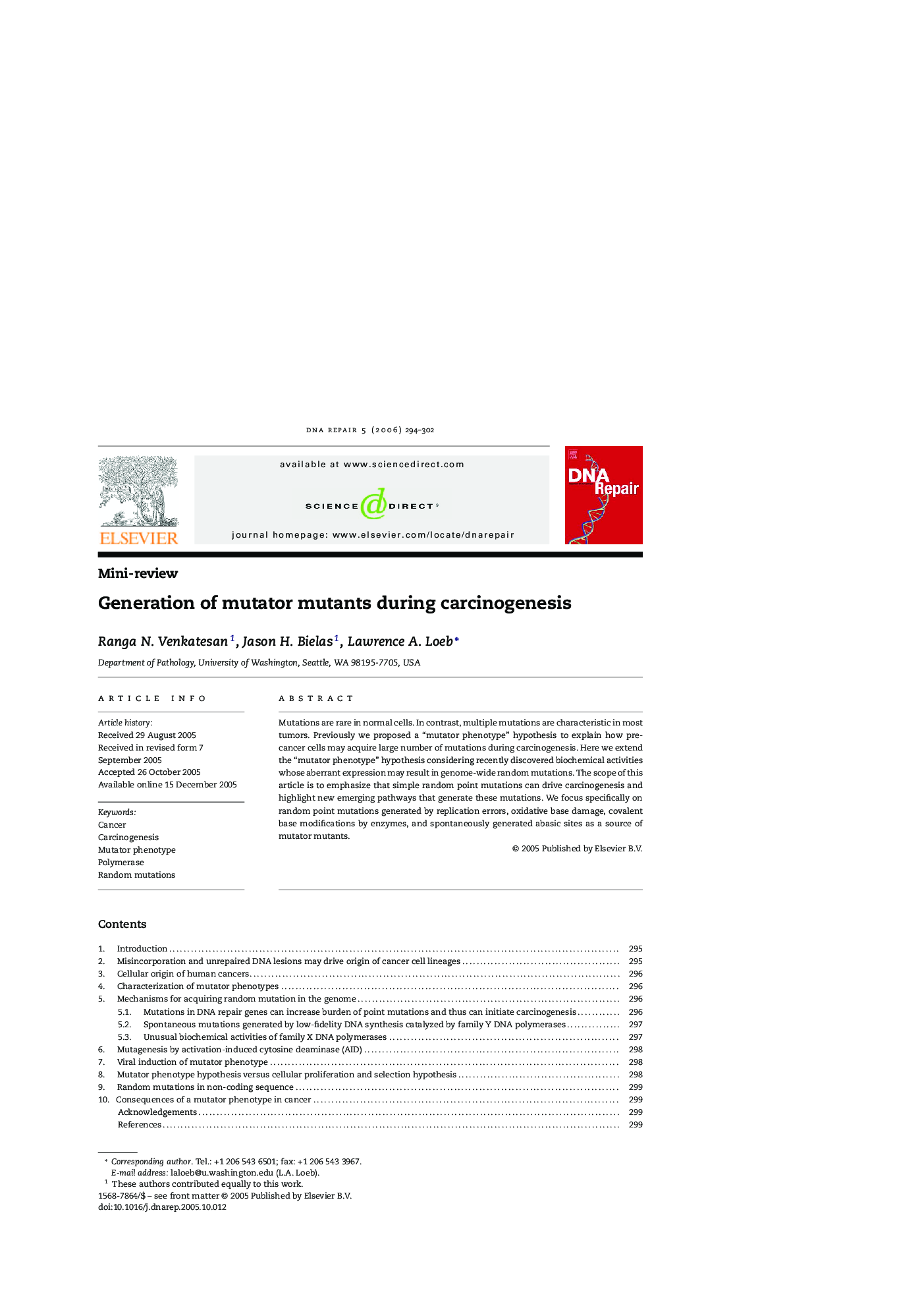| Article ID | Journal | Published Year | Pages | File Type |
|---|---|---|---|---|
| 1981172 | DNA Repair | 2006 | 9 Pages |
Mutations are rare in normal cells. In contrast, multiple mutations are characteristic in most tumors. Previously we proposed a “mutator phenotype” hypothesis to explain how pre-cancer cells may acquire large number of mutations during carcinogenesis. Here we extend the “mutator phenotype” hypothesis considering recently discovered biochemical activities whose aberrant expression may result in genome-wide random mutations. The scope of this article is to emphasize that simple random point mutations can drive carcinogenesis and highlight new emerging pathways that generate these mutations. We focus specifically on random point mutations generated by replication errors, oxidative base damage, covalent base modifications by enzymes, and spontaneously generated abasic sites as a source of mutator mutants.
